Biometrics
Filter by...
-

Facebook deleting facial recognition: Five reasons to take it with a pinch of salt
Voluntary self-regulation from tech giants is superficial and no replacement for actual legislation
Read more
-
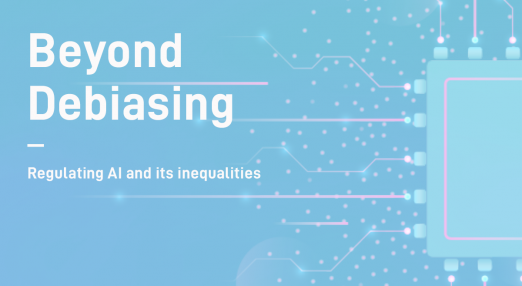
Booklet: If AI is the problem, is debiasing the solution?
The development and deployment of artificial intelligence (AI) in all areas of public life have raised many concerns about the harmful consequences on society, in particular the impact on marginalised communities. EDRi's latest report "Beyond Debiasing: Regulating AI and its Inequalities", authored by Agathe Balayn and Dr. Seda Gürses,* argues that policymakers must tackle the root causes of the power imbalances caused by the pervasive use of AI systems. In promoting technical ‘debiasing’ as the main solution to AI driven structural inequality, we risk vastly underestimating the scale of the social, economic and political problems AI systems can inflict.
Read more
-
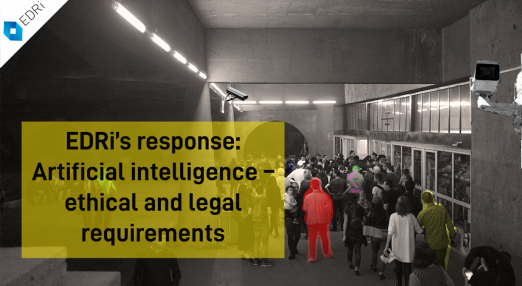
EDRi submits response to the European Commission AI adoption consultation
Today, 3rd of August 2021, European Digital Rights (EDRi) submitted its response to the European Commission’s adoption consultation on the Artificial Intelligence Act (AIA).
Read more
-
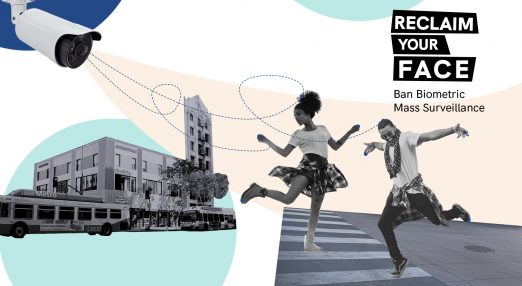
The urgent need to #reclaimyourface
The rise of automated video surveillance is often touted as a quick, easy, and efficient solution to complex societal problems. In reality, roll-outs of facial recognition and other biometric mass surveillance tools constitute a systematic invasion into people’s fundamental rights to privacy and data protection. Like with uses of toxic chemicals, these toxic uses of biometric surveillance technologies need to be banned across Europe.
Read more
-

Challenge against Clearview AI in Europe
This legal challenge relates to complaints filed with 5 European data protection authorities against Clearview AI, Inc. ("Clearview"), a facial recognition technology company building a gigantic database of faces.
Read more
-

From ‘trustworthy AI’ to curtailing harmful uses: EDRi’s impact on the proposed EU AI Act
Civil society has been the underdog in the European Union's (EU) negotiations on the artificial intelligence (AI) regulation. The goal of the regulation has been to create the conditions for AI to be developed and deployed across Europe, so any shift towards prioritising people’s safety, dignity and rights feels like a great achievement. Whilst a lot needs to happen to make this shift a reality in the final text, EDRi takes stock of it’s impact on the proposed Artificial Intelligence Act (AIA). EDRi and partners mobilised beyond organisations traditionally following digital initiatives managing to establish that some uses of AI are simply unacceptable.
Read more
-

Can a COVID-19 face mask protect you from facial recognition technology too?
Mass facial recognition risks our collective futures and shapes us into fear-driven societies of suspicion. This got folks at EDRi and Privacy International brainstorming. Could the masks that we now wear to protect each other from Coronavirus also protect our anonymity, preventing the latest mass facial recognition systems from identifying us?
Read more
-

Regulating Border Tech Experiments in a Hostile World
We are facing a growing panopticon of technology that limits people’s movements, their ability to reunite with their families, and at the worst of times, their ability to stay alive. Power and knowledge monopolies are allowed to exist because there is no unified global regulatory regime governing the use of new technologies, creating laboratories for high-risk experiments with profound impacts on people’s lives.
Read more
-

The EU should regulate AI on the basis of rights, not risks
EDRi's member Access Now explains why the upcoming legislative proposal on AI should be a rights-based law, like the GDPR. The European Commission must not compromise our rights by substituting a mere risk mitigation exercise by the very actors with a vested interest in rolling out this technology.
Read more
-
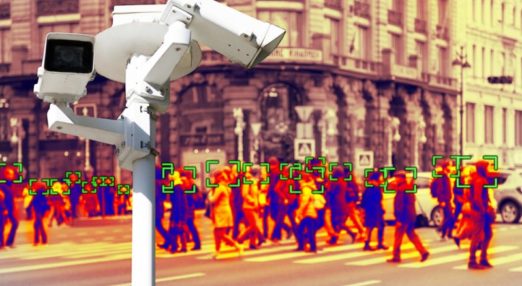
This is the EU’s chance to stop racism in artificial intelligence
Human rights mustn’t come second in the race to innovate, they should rather define innovations that better humanity. The European Commission's upcoming proposal may be the last opportunity to prevent harmful uses of AI-powered technologies, many of which are already marginalising Europe's racialised communities.
Read more
-
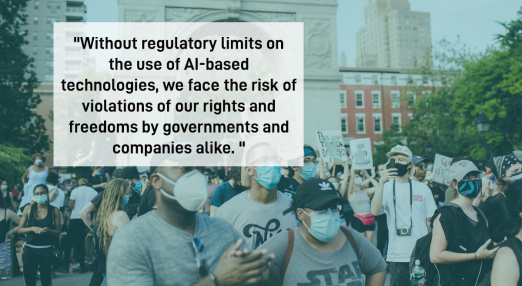
116 MEPs agree – we need AI red lines to put people over profit
In light of the upcoming proposal for the regulation of artificial intelligence in Europe, 116 Members of the European Parliament (MEPs) have written to the European Commission’s leaders in support of EDRi’s letter calling for red lines on uses of AI that compromise fundamental rights.
Read more
-

Eurodac database repurposed to surveil migrants
Eurodac is the EU database used to store asylum seekers’ and refugees’ data, as well as certain categories of “irregular” migrants. By the end of 2019, the EU stored almost 6 million peoples’ fingerprint sets in the database. Research show how legislative developments transform the Eurodac database into “a powerful tool for mass surveillance”, endangering migrants' fundamental human rights.
Read more
